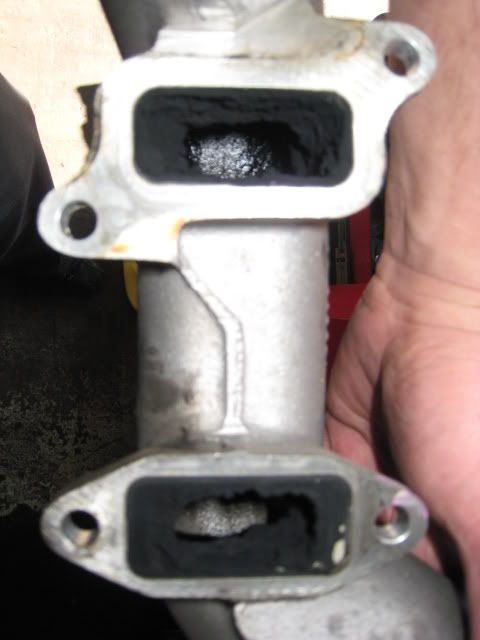I checked the service history also asked previous owners(2) to see if the EGR on our Multiwagon had ever been replaced or cleaned. Unfortunately the answer was no so I've decided to have a go myself because she's now got 97,000 on the clocks. Of course I searched the net first to get a better idea of what to do.
Hundreds, maybe even thousands of people complaining about the crap the EGR allows into the inlet side of the engine.
Example.

http://duramaxdiesels.com/forum/showthread.php?p=91612
After searching and reading all morning.
I've found a lot of tuning products come with EGR delete kits(block off the EGR) to help reduce flat spots.
The EGR allows dirty, hot, burnt, sooty air into the inlet of the engine, whats the point in having an intercooler and air filter if the EGR allows the crap in anyway?
Regular cleaning/maintenance is essential.
So I'm blocking the EGR off this weekend after giving it a good clean.
If the EGR is functioning perfectly like in a brand new car then there's nothing to worry about but if your car has a few miles on it then the EGR is probabely doing more harm than good.
Anyone else runing their car with the EGR blocked, perhaps because of tuning or because you can't be arsed to strip and clean it every couple of thousand miles?
Hundreds, maybe even thousands of people complaining about the crap the EGR allows into the inlet side of the engine.
Example.

http://duramaxdiesels.com/forum/showthread.php?p=91612
After searching and reading all morning.
I've found a lot of tuning products come with EGR delete kits(block off the EGR) to help reduce flat spots.
The EGR allows dirty, hot, burnt, sooty air into the inlet of the engine, whats the point in having an intercooler and air filter if the EGR allows the crap in anyway?
Regular cleaning/maintenance is essential.
So I'm blocking the EGR off this weekend after giving it a good clean.
If the EGR is functioning perfectly like in a brand new car then there's nothing to worry about but if your car has a few miles on it then the EGR is probabely doing more harm than good.
Anyone else runing their car with the EGR blocked, perhaps because of tuning or because you can't be arsed to strip and clean it every couple of thousand miles?
Last edited:

